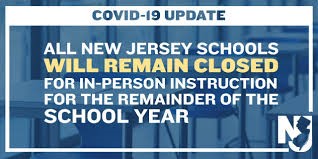
To address the reality that a significant amount of the workforce will be impacted by the school districts’ reopening plans, laws have been enacted imposing various legal obligations on employers to accommodate affected employees in certain circumstances.
Families First Coronavirus Response Act
The federal Families First Coronavirus Response Act (“FFCRA”) requires most employers with less than 500 employees to provide paid job-protected leave to employees who cannot work for various reasons relating to COVID-19. Significantly, one of these specified reasons is when an employee has a bona fide need for leave to care for a child whose school or child care center is closed or unavailable due to the pandemic. Specifically, the FFCRA provides up to 80 hours of emergency paid sick leave (generally referred to as “Paid Sick Time” or “PST”) and up to 12 weeks of emergency paid family leave (generally referred to as “Expanded Family and Medical Leave” or “EFMLA”) to employees who cannot work for such childcare purposes. Employees using PST or EFMLA for childcare purposes are entitled to 2/3 of their regular rate of pay, up to a maximum of $200 per day.
On August 27, 2020, the United States Department of Labor (“USDOL”) issued new FAQs, which address common return to school scenarios in light of the fact that many schools will not be opening on a fully in-person basis. In part, the FAQs provide:
An employee may be entitled to FFCRA leave where their child’s school has adopted a fully remote or hybrid instruction approach. Finding that the school is effectively “closed” on remote days, the USDOL states: “Yes, you are eligible to take paid leave under the FFCRA on days where your child is not permitted to attend school in person and must instead engage in remote learning, as long as you need the leave to actually care for your child during that time and only if no other suitable person is available to do so.” (FAQ 98).
An employee is not entitled to FFCRA leave when the employee voluntarily decides to keep their child home for 100% remote learning. The USDOL reasons that the child’s school is not “closed” due to COVID-19 related reasons. That being said, where the employee’s child’s school is operating using a hybrid model, the employee may still be entitled to FFCRA leave on each of the child’s remote-learning days because the school is effectively “closed” to the child on those days. (FAQ 99).
New Jersey Earned Sick Leave Law
The New Jersey Earned Sick Leave Law may also apply to employees who need leave for childcare purposes. Under this law, New Jersey employees are entitled to 1 hour of paid sick time for every 30 hours worked, up to a maximum of 40 hours of paid sick time per year. Employees are entitled to take such leave for a variety of reasons, including, “time during which the employee is not able to work because of a closure of the employee’s workplace, or the school or place of care of a child of the employee, by order of a public official due to an epidemic or other public health emergency[.]”
New Jersey Family Leave
New Jersey employees may also be entitled to take unpaid job-protected family leave under the New Jersey Family Leave Act (“NJFLA”). Initially, the NJFLA provided up to 12 weeks of unpaid leave, during any 24-month period, to employees for the birth of a child, the adoption or placement of a child in foster care, or the care of a family member with a serious health condition.
In response to COVID-19, the NJFLA was amended to expand the protected reasons for leave during a state of emergency or as required by a public health authority to include: (1) to care for a family member that is subject to any declaration by a public health authority, including a mandatory quarantine order, as a result of illness caused by the communicable disease or known or suspected exposure to the communicable disease; (2) to care for a family member who, under the recommendation of a healthcare provider or public health authority, voluntarily self-quarantines as a result of suspected exposure to a communicable disease; or (3) to care for their child whose school or place of care is closed by order of a public official due to the epidemic or other public health emergency. Therefore, an employee who needs time off from work to care for their child whose school or daycare is closed as a result of COVID-19 may be entitled to NJFLA leave.
While NJFLA leave is unpaid as noted above, employees are generally entitled to return to work in the same position they held before taking such leave.
Assembly Bill 3848
New Jersey has also passed additional measures to protect employees during the pandemic. For example, the passage of Assembly Bill 3848 prohibits employers from retaliating against an employee who requests or takes time off from work based on the recommendation of a medical professional that the employee has (or likely has) an infectious disease and provides such employees with job protection during the leave. Further, New Jersey expanded laws concerning temporary disability benefits and paid family leave insurance benefits to provide employees with paid benefits for leave taken in certain pandemic-related circumstances.
Burnham Douglass can help employees struggling to balance work and family responsibilities but uncertain about their rights under the laws when required to request time off or other accommodations to care for their children whose education is affected by COVID-19.

